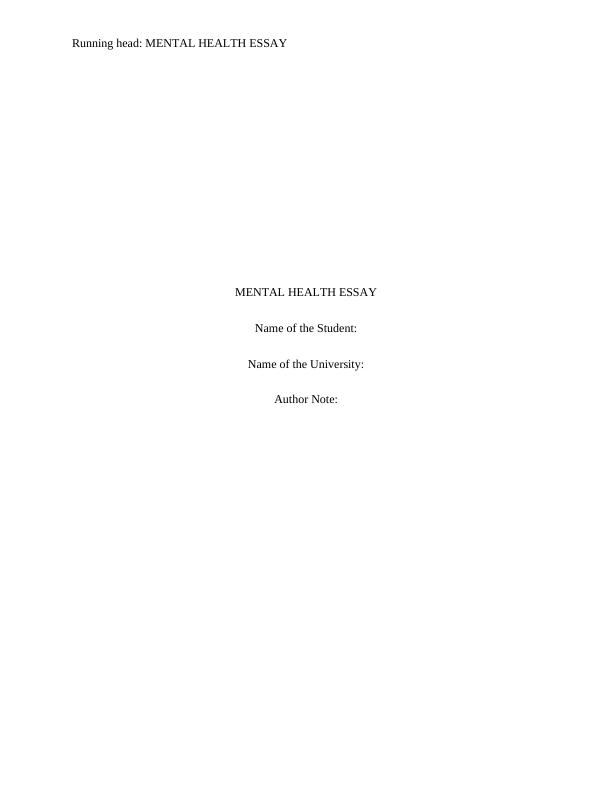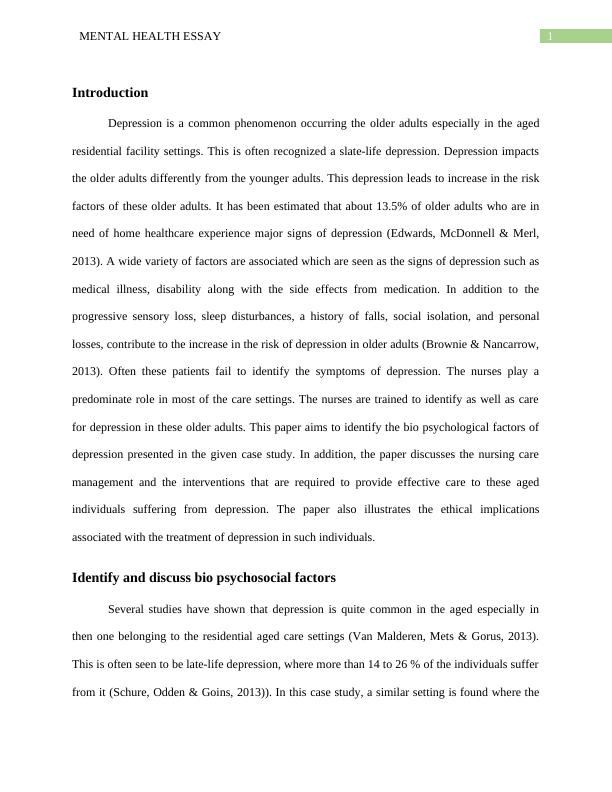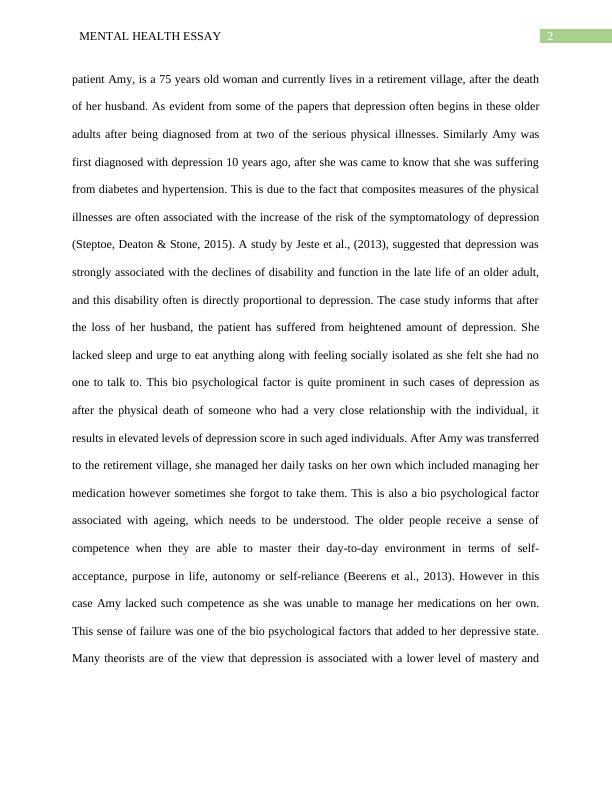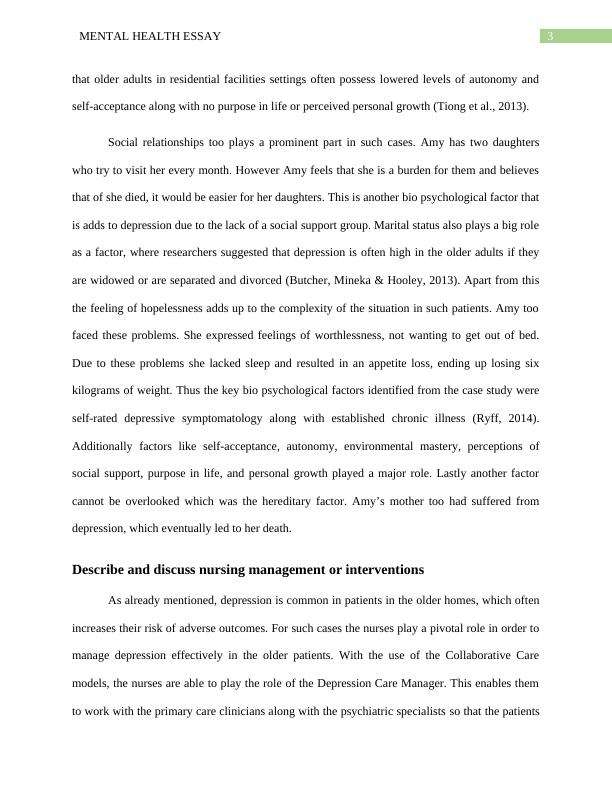Bio-Psychosocial Factors of Depression in Older Adults in Aged Care Facilities
Analyzing a case study to discuss biopsychosocial factors and nursing management for a mental health issue.
11 Pages3086 Words352 Views
Added on 2023-06-10
About This Document
This paper discusses the bio-psychosocial factors of depression in older adults in aged care facilities, nursing management and interventions, and ethical implications associated with the treatment of depression in such individuals.
Bio-Psychosocial Factors of Depression in Older Adults in Aged Care Facilities
Analyzing a case study to discuss biopsychosocial factors and nursing management for a mental health issue.
Added on 2023-06-10
ShareRelated Documents
End of preview
Want to access all the pages? Upload your documents or become a member.
Promoting Excellence in Older People’s Care in Nursing
|18
|5136
|324
Bio-Psychological Factors Contributing to Depression: Nursing Interventions and Ethical Implications
|9
|2829
|414
Assignment on Chronic Illness And Disability
|8
|2603
|9
Understanding of Common Physical and Psycho : social Health Problems
|16
|4634
|39
Depression: Biopsychosocial Factors, Treatment Interventions, and Ethical Implications
|11
|3036
|379
Nursing Case Study: Mental Health
|10
|3122
|482




